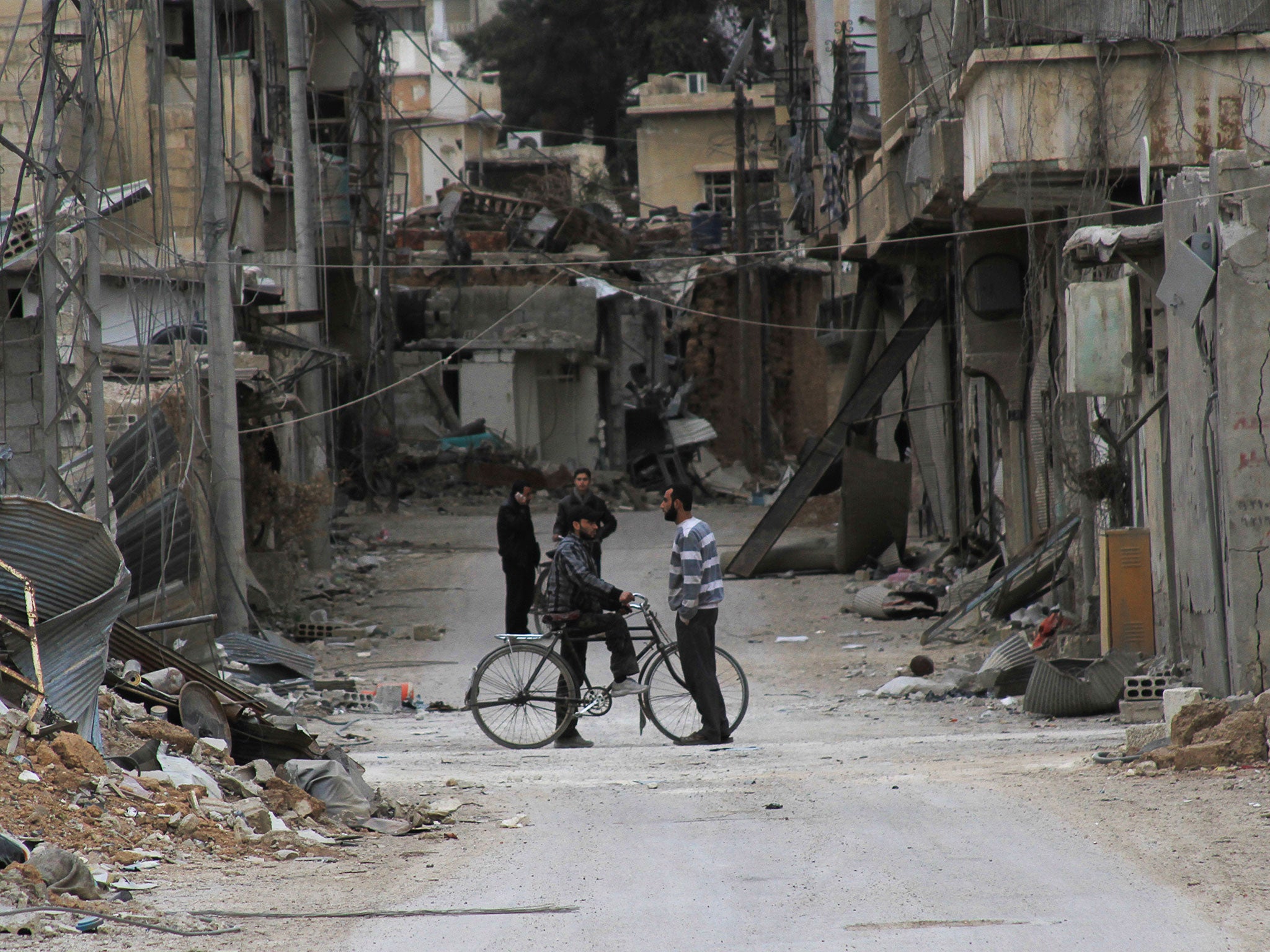Syrians are eating grass in the besieged cities of Daraya and Deir al-Zor, says World Food Programme
Syria's government has refused to give permission for UN aid convoys to enter six areas under siege by its forces, including Daraya

Your support helps us to tell the story
From reproductive rights to climate change to Big Tech, The Independent is on the ground when the story is developing. Whether it's investigating the financials of Elon Musk's pro-Trump PAC or producing our latest documentary, 'The A Word', which shines a light on the American women fighting for reproductive rights, we know how important it is to parse out the facts from the messaging.
At such a critical moment in US history, we need reporters on the ground. Your donation allows us to keep sending journalists to speak to both sides of the story.
The Independent is trusted by Americans across the entire political spectrum. And unlike many other quality news outlets, we choose not to lock Americans out of our reporting and analysis with paywalls. We believe quality journalism should be available to everyone, paid for by those who can afford it.
Your support makes all the difference.Some Syrians in the besieged areas of Daraya and Deir al-Zor have been reduced to eating grass because food supplies are cut off, the UN World Food Programme said on Friday.
"In the most severe cases, they are enduring entire days without eating, sending children to beg and eating grass/wild vegetation," a report said.
Deir al-Zor is under seige by Isis forces, while Daraya is besieged by government forces and has become a focus of UN efforts to get aid to all of Syria. Syria's government has not yet granted permission for aid to go to the city.
Households in the two cities were unable to eat more than one meal per day, giving priority to children, said the WFP report, a survey of Syrian food market conditions in February.
Fresh bread was "sporadically available at an extortionate cost" in Daraya, 30 times above the market price in nearby Damascus. Rice was 17 times higher than Damascus prices.
Earlier this year, the Syrian government approved humanitarian aid deliveries to seven besieged cities considered to be most in need of relief by the 17-member International Syria Support Group.
However, despite a widespread truce that has lasted almost three weeks, the government has refused to give permission for UN aid convoys to enter six areas under siege by its forces, including Daraya.
UN humanitarian advisor Jan Egeland said on Thursday that countries backing the Syrian peace talks had given the Syrian government seven days to answer a UN request to deliver aid.
"It is in violation of international law to prevent us from going," he said, adding that the six areas were no more strategic or symbolic than other areas that had already received aid convoys.
"In Daraya there has been fighting, but we had a very clear impression that we will not be having any problems in delivering if we get the two sides to agree to the cessation of hostilities so that we can deliver to the few thousand people there, civilians who are in a very, very difficult position," Egeland said.
With no hope of getting convoys into Deir al-Zor by road, the UN hopes to do air drops of food. But a first attempt failed because the plane had to fly so high and fast to avoid the threat of surface-to-air missiles, causing the parachutes to fail because of the severe jolt when they opened.
Civilians in several Syrian cities have been starving as a result of sieges by the regime, rebel groups and Isis.
Thousands of civilians in the besieged settlement of Madaya were forced to eat leaves and flower petals to stay alive after eating the town's stray dogs and cats.
Supporters of the Syrian regime shared photos of their dinners to taunt the civilians and express their "solidarity with the siege of Madaya".
Reuters
Join our commenting forum
Join thought-provoking conversations, follow other Independent readers and see their replies
Comments